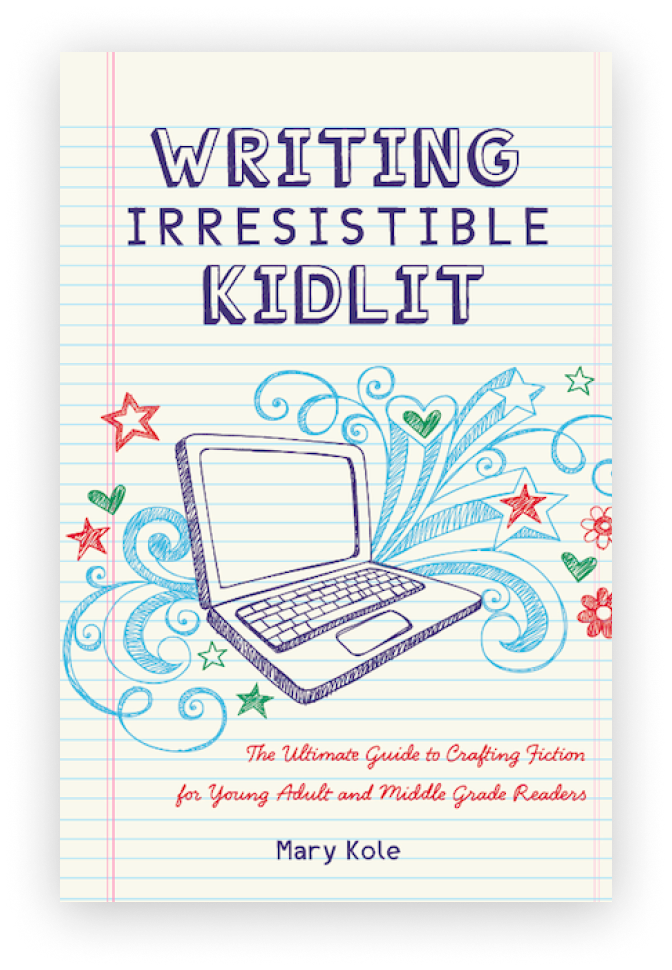Everything You Need to Know About Writing Conferences
By Mary Kole
Mary Kole is a former literary agent, freelance editor, writing teacher, author of Writing Irresistible Kidlit, and IP developer for major publishers, with over a decade in the publishing industry.
If you’re a writer, you might be eager to do some writing conferences to make connections and level up your skills. They can be a great way to get new ideas about your craft and network. But how do you know when you’re ready to attend some writing conferences? And what should you expect? Let's take a look at the ins and outs of writing conferences, so you can maximize your experience.
Are You Ready to Attend Writing Conferences?
Attending writing conferences probably won’t be something you should try as soon as you start writing. They can be great for getting an overview of the publishing industry, but they tend to be an investment. (The great thing about the pandemic is the proliferation of virtual writing conferences, and these are sometimes easier to swing than an in-person event.)
After having spoken at dozens and dozens of writing conferences, I can tell you confidently that you might want to hold off until you’ve met certain milestones. For example, you should have some semblance of a complete manuscript, or at least one that you’re revising. You can certainly go to writing conferences as you’re still casting around for book ideas, but you might get something more substantial out of the experience by already having something substantial in your pocket.
What Can Writing Conferences Do for Your Career?
Writing conferences offer more than just panels and workshops. They also provide networking opportunities with industry professionals and other writers, especially if you’re looking for a critique partner or writing group. Writing conferences are also a great way to practice your elevator pitch craft. Literary agents and publishing house editors often attend conferences in search of new talent, or to speak, do critiques, and pick up some additional credibility. (Writing conferences also pay their speakers, and this can subsidize an agent’s commission-based revenue stream.)
Getting the chance to pitch your work to these industry insiders can be invaluable. Even if you don’t meet “the one” to get you a book deal at a conference, you can get some great practice and experience in. Additionally, most writing conferences have plenty of activities aimed toward helping writers learn specific categories and subject areas (and some writing conferences are specific to a genre or category).
Making the Most of Writing Conferences
There are plenty of ways to make the most of your experience at any writing conferences you choose to attend. First off, research the faculty! Make sure you know who will be speaking at the event. Get to know their work and ask questions if they’re speaking at a panel or if you run into them at a mingle—just make sure not to be awkward, even if you’re nervous.
Create an elevator pitch about yourself and your project prior to the conference weekend even if you’re not signed up for a pitch. The most common question you’ll encounter is, “What are you writing?” You’ll want to be ready with a snappy answer. If you do end up pitching to a literary agent or editor, and they request your work, make sure to follow up with whatever they’ve requested or even a thoughtful thank you. But most importantly, don’t expect to walk away from any writing conferences with a book deal. Connections start at the conference but are generally nurtured later.
Writing conferences are a great way for you to further your craft and get connected with agents and editors. Before considering attending one, though, make sure you are ready. If not, you can always catch some virtual writing conferences or the following year’s event.

Click here to purchase Writing Irresistible Kidlit, my book on fiction craft for MG and YA novels, out from Writer's Digest Books. This will show you my writing craft philosophy and give you lots of valuable advice, including tips for the novel revision process and self-editing. There are over 35 example novels cited and discussed throughout. It’s a valuable resource for any writer’s toolkit.
Click here to purchase Irresistible Query Letters, my book on query letters, including over forty examples with comprehensive notes on each one. There’s a ton of submission advice, best practices, and insider information in these pages, and you’ll really enjoy seeing what other writers are doing in the slush.
Click here to purchase Writing Interiority: Crafting Irresistible Characters, my book on interiority and character creation. Explore your protagonist’s thoughts, feelings, reactions and interpretations, expectations, and inner struggles to create a rich, immersive experience. This guide will empower you to create characters who live and breathe on the page, fostering an unbreakable bond with your audience.





